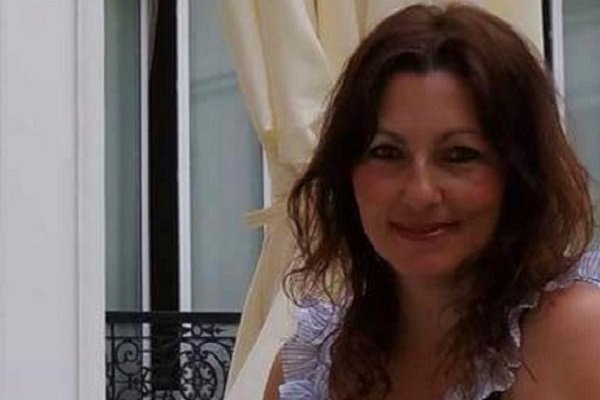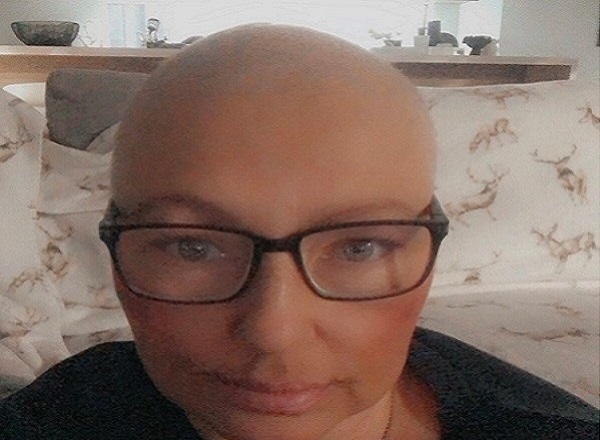Cancer is hard, and COVID-19 has made it even harder. The disruption caused by the global pandemic has changed the way cancer care is delivered across Victoria, making a complex journey through the healthcare system even more difficult to navigate.
A 2022 Cancer, COVID-19 + You study conducted by Cancer Council and The Daffodil Centre found that during the pandemic, people with cancer reported moderate to severe emotional distress, with the highest distress levels reported during lockdowns. Most people with cancer reported moderate to severe emotional distress (90% during lockdowns).
This was the case for Rose, who was diagnosed with breast cancer during the pandemic and found herself seeking support from Cancer Council Victoria’s nurse counselling service.

“Just when COVID-19 hit, I had found a lump, but I developed severe panic attacks and had an anxiety disorder and was not even able to leave my front door. I thought, how am I going to get this diagnosed? I can’t get past the front door! I was too fearful because of COVID-19 so I just sat with it for a while and the lump kept moving around so I thought it didn’t seem too sinister,” she said.
“A few months later I felt the area again and it felt like a bigger mass and then I thought, I really need to do something about this because this doesn’t seem right and it’s not moving around anymore. I finally went to the doctor, and I was diagnosed with Stage 3 triple positive breast cancer.”
For Rose, embarking on a cancer journey during the pandemic was overwhelming and daunting due to the limitations that COVID-19 enforced.
“I was scared to go into a hospital setting where I had no family. I couldn’t have family support. I was only going to have people that I didn’t know,” she said.
“There was an enormous amount of fear. There was an enormous amount of anxiety. There was an enormous about of uncertainty."
“I felt isolated because we couldn't talk to anybody except over the phone and it's not the same as being face to face with that physical human contact.
“I wondered how on earth I was going to pull myself through this mentally and emotionally.”
The report found that more than a quarter of people with cancer reported not receiving enough emotional and mental health support for their cancer during the pandemic. Some of these people didn’t know what formal emotional and mental health support was available to them.

For Rose, it was early on in her cancer journey that she felt lost and isolated, but luckily an oncology nurse suggested she reach out to Cancer Council Victoria’s nurse counselling service.
“The lady that I used to talk to, she was a saviour. She just had a beautiful, reassuring mannerism that made me feel like I was protected and safe,” she said.
“She could answer every question that I threw at her. She knew all the answers. The delivery too, it was respectful and kind. Because she knew I had anxiety, she still told me all the facts, but she softened them a little bit. She had the ability to read what I needed on an emotional and psychological level. It was truly amazing.
“You don’t really understand how much these people do until you’re in that situation and it’s you on the other end of the phone. I’ll never forget their role in my journey.”
For many like Rose, COVID-19 fundamentally changed their cancer experience in Victoria, with lockdowns and fears of contracting COVID-19 exacerbating feelings of anxiety and isolation.
The concerns didn’t stop there, with challenges surrounding technology and communication with telehealth, distress caused by hospital visitor restrictions, particularly for people needing interpreter support, and disruptions around travelling to treatment from regional areas.
At present, there are not enough mental health professionals to support people affected by cancer.
Like Rose, people with cancer during the pandemic were limited in the physical support allowed from family and loved ones, profoundly affecting the treatment experience.
“It was hard to trust people outside my family, like the medical team, who at the start were strangers. I had to learn that I’ll still be safe, even though it’s not my family."
Hospital visitor restrictions over the past few years have exposed the vital role that carers play in a person’s cancer journey; providing logistical, emotional, and physical support during appointments, treatment, and care. Without this much-needed support, people with cancer were left to go through difficult times alone.
As a result of disruptions like this, there has been a significant increase in demand for emotional and mental health support. Now is the time for health services, cancer organisations and governments to listen to the experiences of people affected by cancer and shape cancer support services to meet current and future demand.
Cancer Council Victoria is calling for further investment to improve care and meet the growing needs of mental and emotional support for people with cancer. See more recommendations and read the 2022 Cancer, COVID-19 + You report here.
Story cover image credit: Priscilla Du Preez via Unsplash.
Get support
Visit our Cancer and COVID-19 information and support hub, or call 13 11 20 to speak to our trusted and compassionate cancer nurses for support.
Learn more